目次
Craft Report
Akita Cedar Buckets and Barrels—Supporting Daily Life from the Late Heian Period to Today.
With its gentle wood grain, soothing cedar aroma, minimal warping, and remarkable durability, natural Akita cedar buckets and barrels are designated as a Traditional Craft by the Minister of Economy, Trade, and Industry. At Okedaru Kobo Aki in Kitaakita City, master craftsman Akio Sato, who has devoted 40 years to the craft, continues to handmake these now-rare Akita cedar pieces one by one.
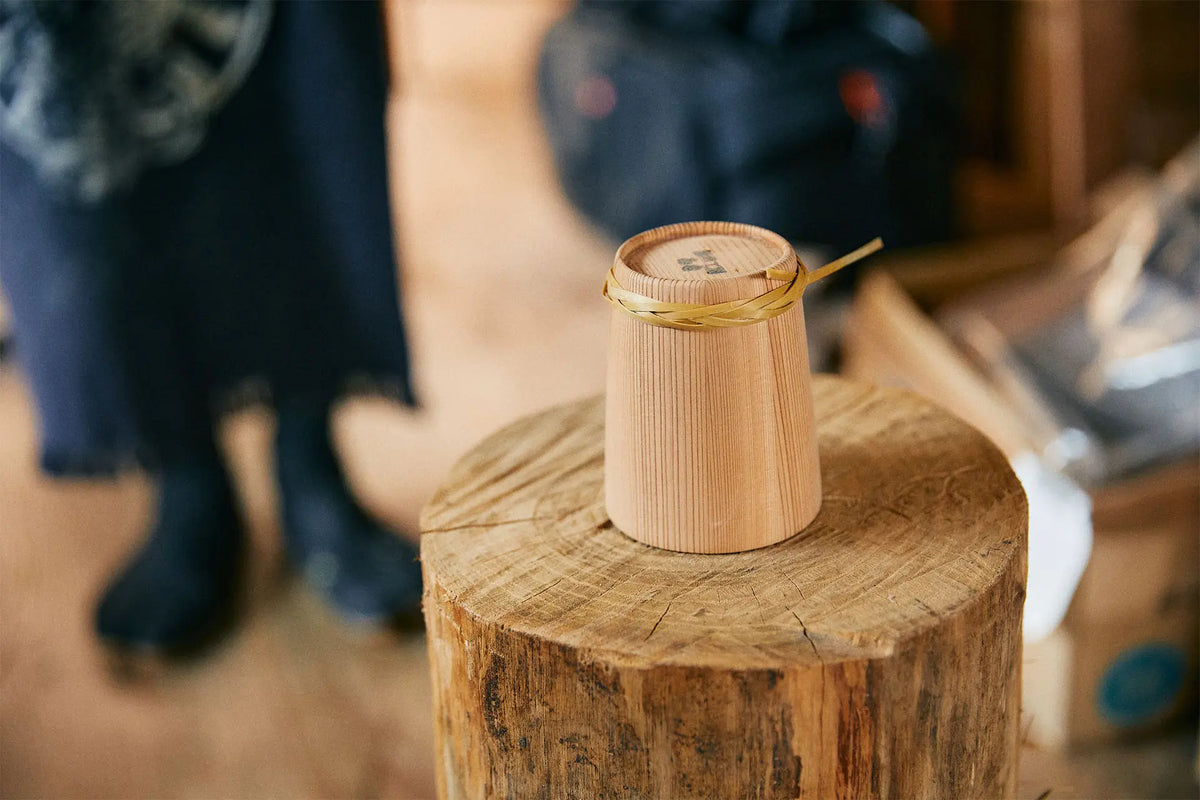
The history of Akita cedar buckets and barrels stretches back centuries. At Akita Castle, bottom boards and handles from buckets and barrels estimated to date from the late Heian period were unearthed. In the Edo period, records show that local coopers produced them in large numbers under the protection and encouragement of the domain. The strength and durability of Akita buckets and barrels made them highly valued, and during the Meiji and Taishō eras demand grew for rice containers (ohitsu), household wash tubs, sake and soy sauce barrels, pickling tubs, and sushi tubs.
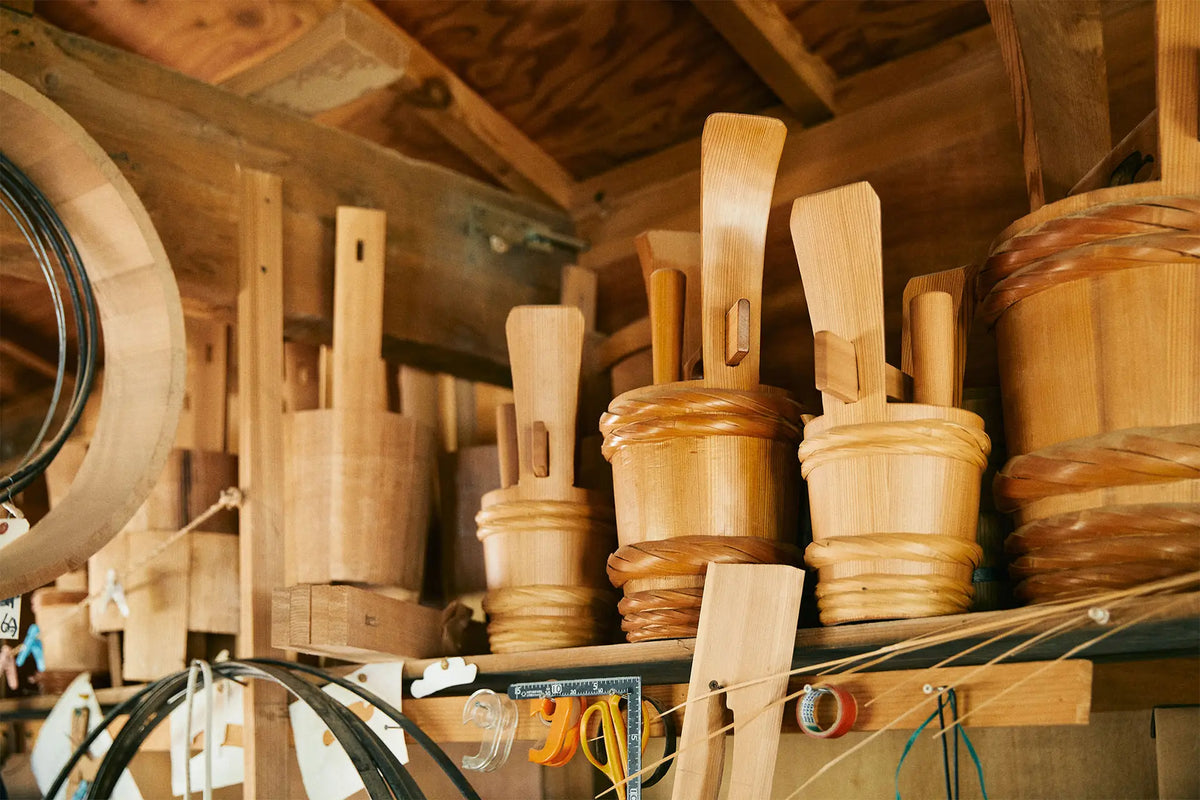
Quitting a Company Job to Become a Cooper in His Thirties.
Today, Sato continues to craft these historic Akita cedar buckets and barrels, though he once worked for a construction company. One day, on his way back from a business trip, he happened upon a lively cooperage making sake barrels. Intrigued, he often stopped to watch. Eventually he began speaking with the workshop’s owner, who told him about the shortage of successors.
At the time Sato was 31. Though invited to take up the craft, he initially declined since his company job offered a steady salary. But by his mid-thirties, his outlook had changed: he resolved to take the leap into coopering. At age 65 he became independent, and now, after 40 years in the trade, he is recognized as a nationally certified Traditional Craft Artisan, responsible for passing on his skills to future generations.
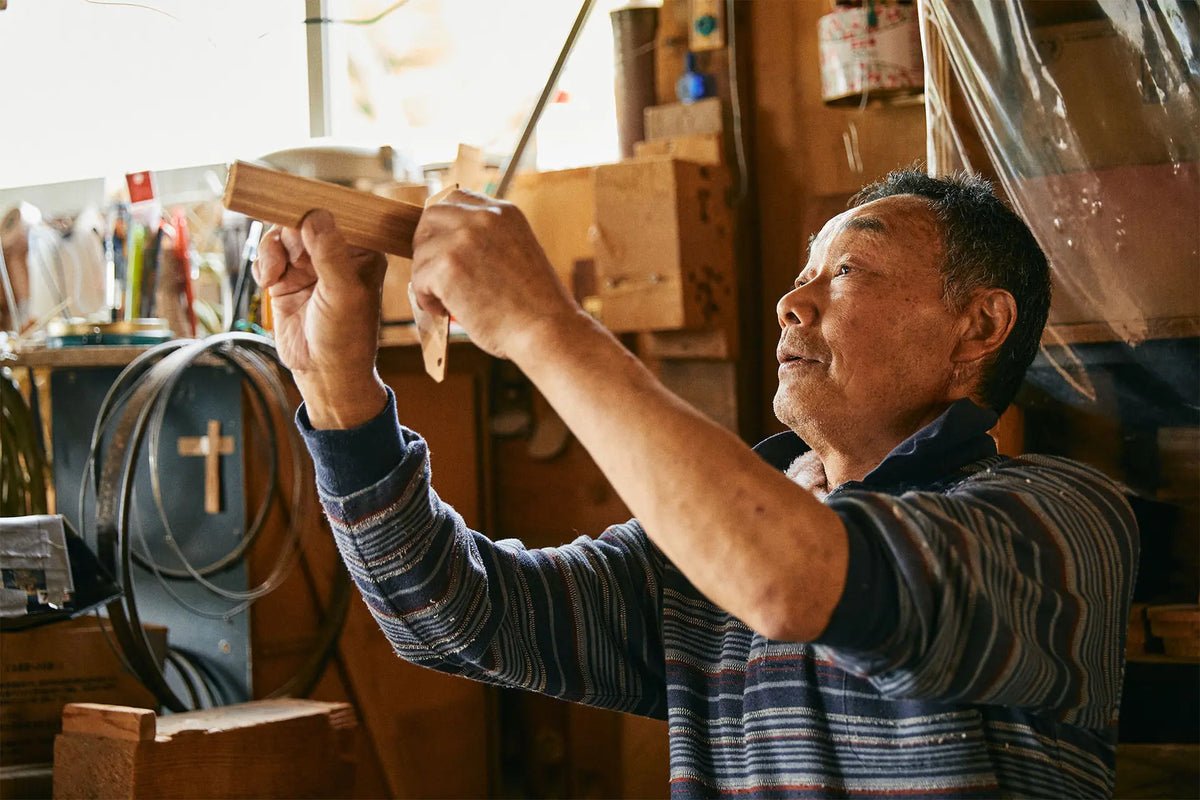
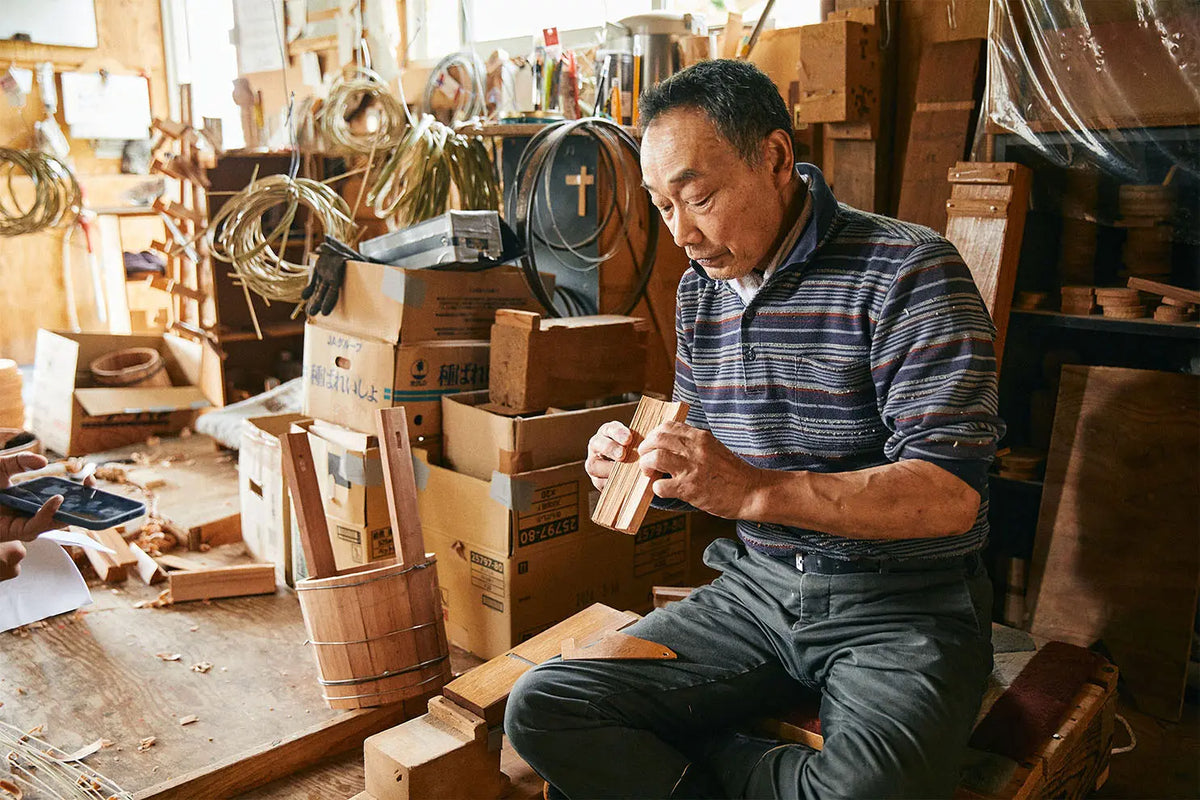
Smooth Functional Beauty That Can Only Be Made with Honesty.
The process begins by preparing kure staves, cut from logs into strips showing either straight-grained masame or curved itame patterns. These staves are shaved on both sides with a special drawknife (sen), then carefully curved with a plane called shōjiki (“honesty plane”) before being set upright in a ring. Finally, the bottom board and bamboo hoops (taga) are fitted and tightened, and the surface is finished.
Among the many steps, the shōjiki stage of shaving smooth curves is the most crucial. If done poorly, gaps form inside or outside the vessel. “As the name of the tool suggests, you have to be honest in spirit when you work. If your mind drifts elsewhere, it won’t come out right,” Sato explains. Through this process, the staves join seamlessly, resulting in beautifully smooth barrels.
The tools themselves must also be made from scratch to match the requested size or shape. Without toolmaking skills, a cooper cannot meet customers’ needs.
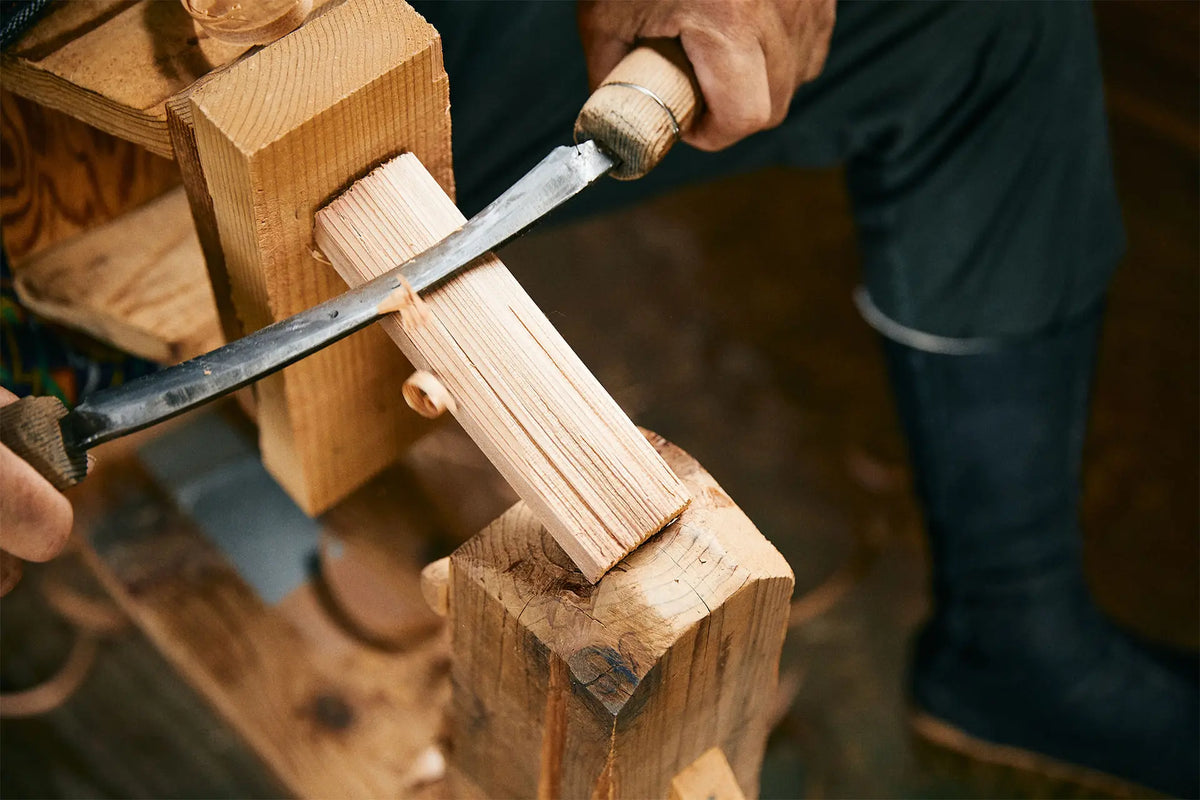
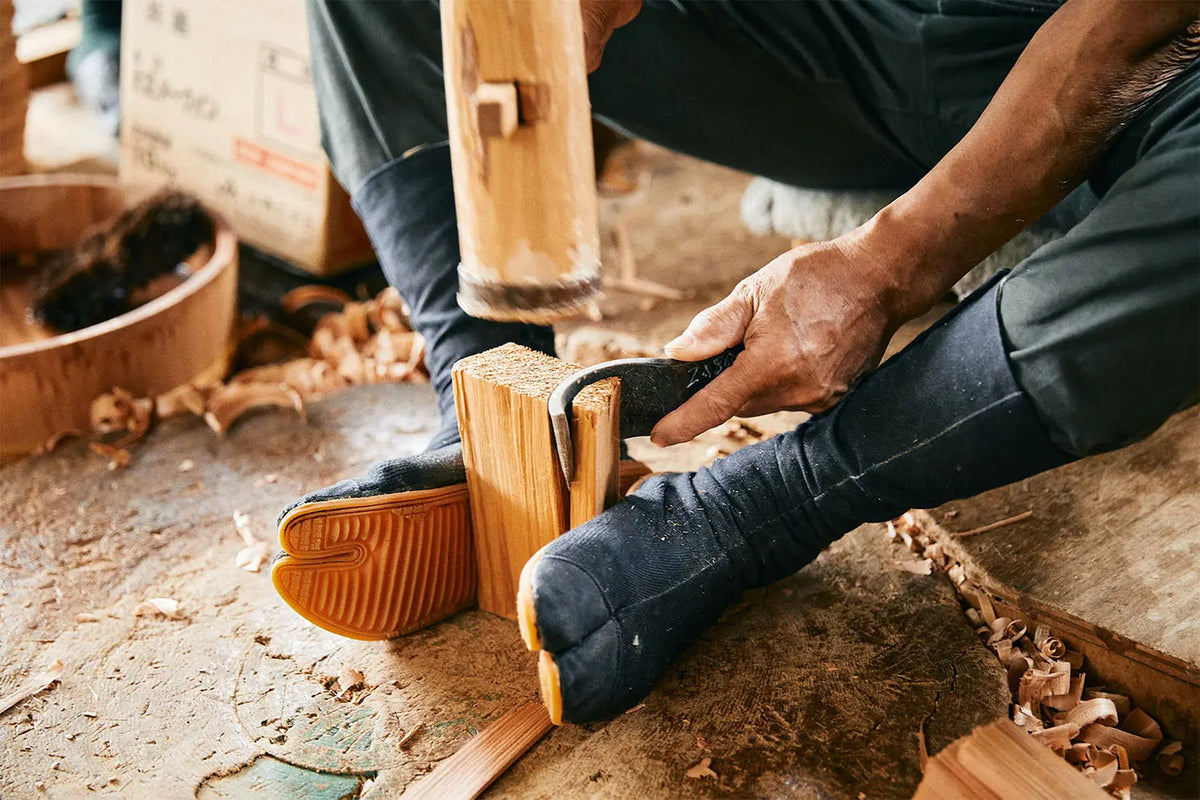
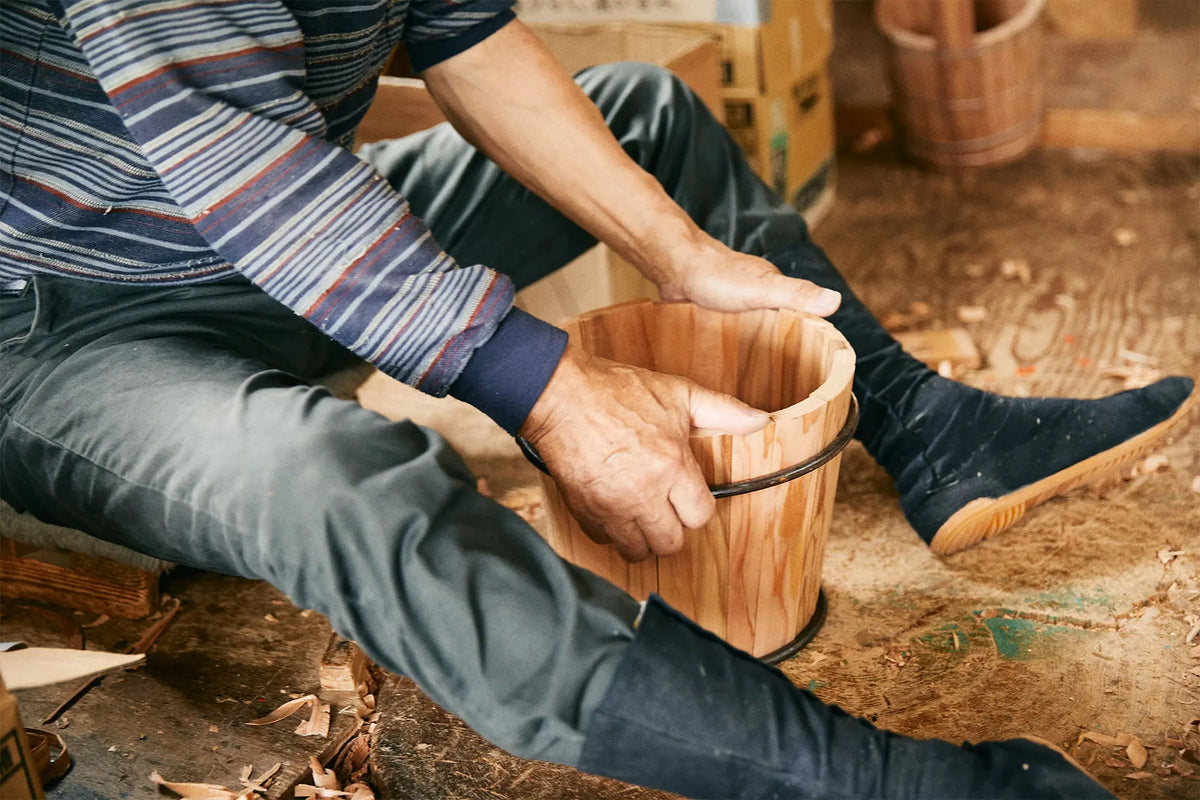
Applying Cooper’s Knowledge to New Creations.
Sato works primarily with natural Akita cedar, one of Japan’s “Three Great Beautiful Forests,” using trees over 250 years old. This cedar is light in weight, with fine, straight grain and remarkable suppleness after boiling.
However, in recent years logging of natural Akita cedar has been prohibited for conservation, making it extremely rare. Larger manufacturers substitute plantation cedar aged 80–100 years, but this wood is harder and less workable. Sato has therefore experimented with other species—magnolia, oak, cherry—judging their characteristics to create new products.
One such prototype is a whiskey cup made from oak, chosen for its distinctive aroma and natural kinship with mizunara barrels traditionally used in whiskey aging. He has also experimented with bamboo hoops painted red or gold; when sold, these pieces were well-received in Taiwan, prompting him to explore overseas markets.
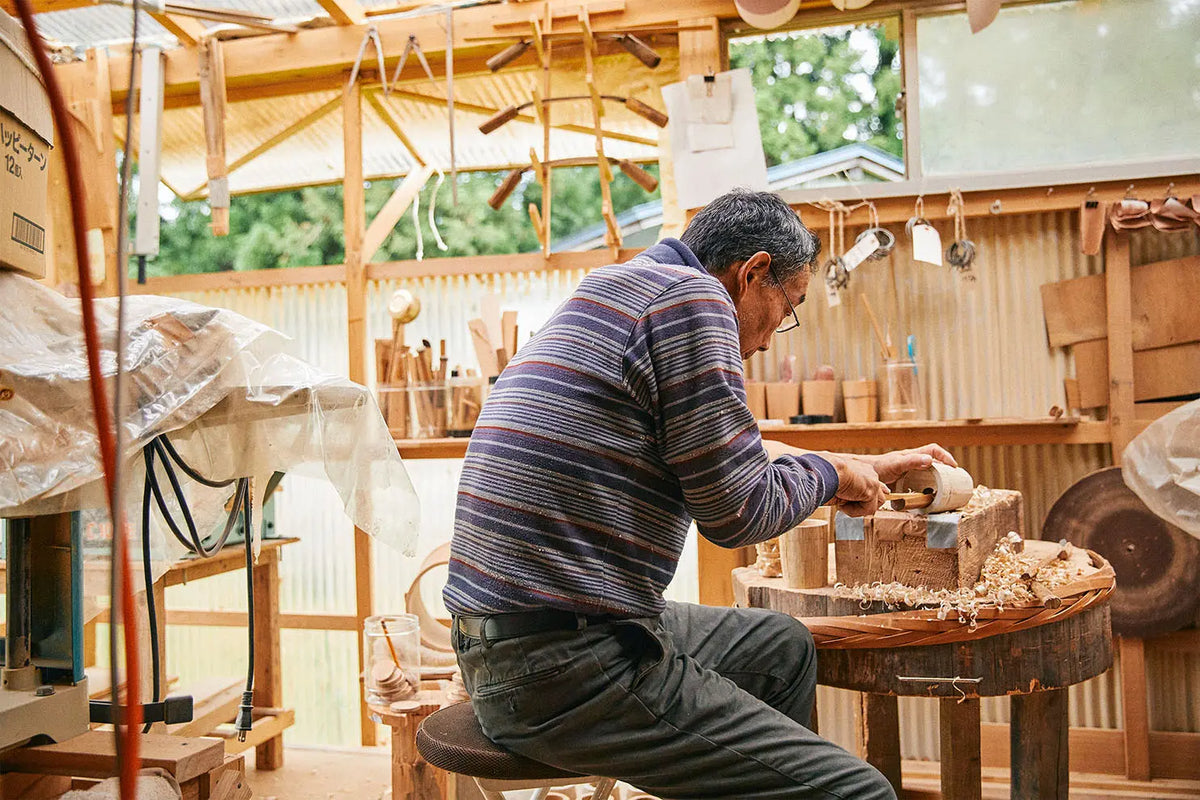
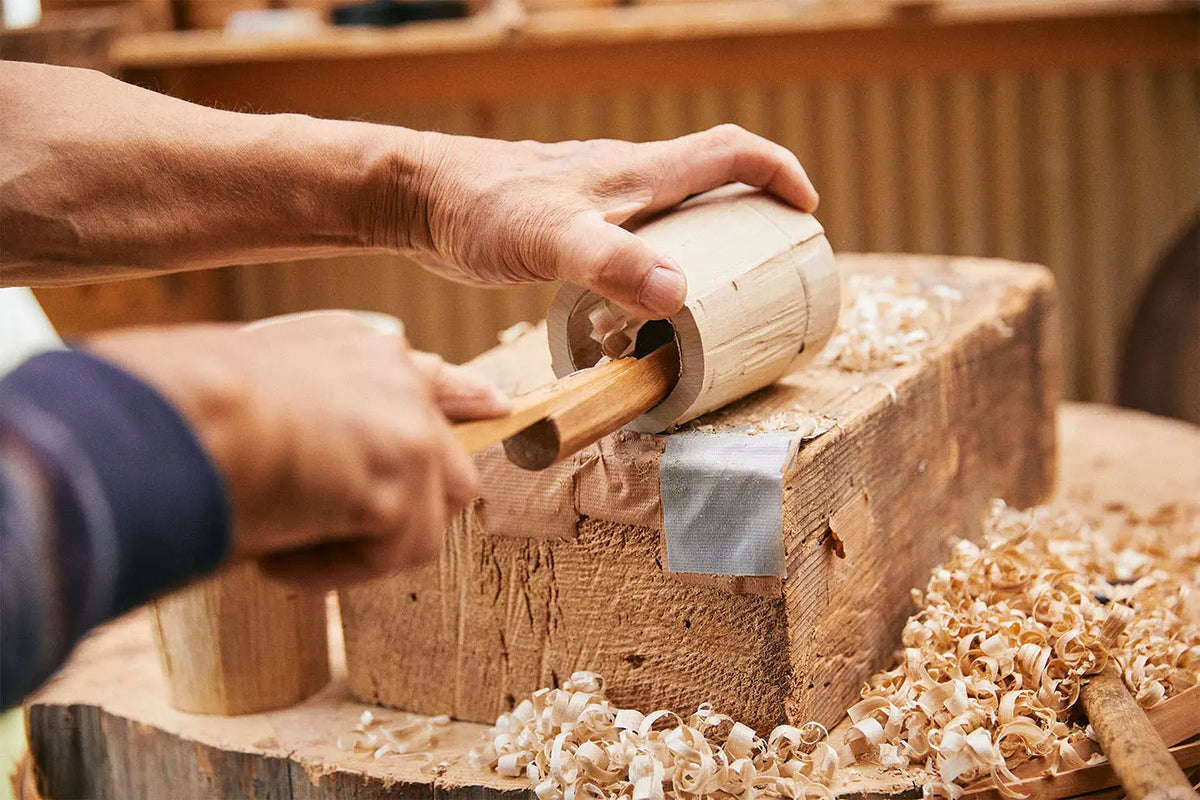
An Evolving Spirit of Craft—Always Striving to Create More.
Sato always keeps in mind: How will the customer use this? He believes that any moment may spark an idea, and he continues to expand his product range based on customers’ requests.
“Recently, a customer told me that a cup made from younger cedar felt too coarse. So I made one from natural cedar over 250 years old. They were so delighted that they even sent me a letter of thanks. That really moved me—it made me realize, ‘What I’m doing is right.’”
“Throughout my career, I’ve grown because I’ve tried to meet customers’ needs. My skills have evolved by responding to their voices. I still have many ideas in store, and I want to break out of conventional molds to create new things. I’ll keep finishing prototypes and continue striving to bring forth more and more new work,” Sato says, expressing his vision for the future.
Interview: Takuya Arata Photography: Daiki Morishita Text: Kento Onishi





